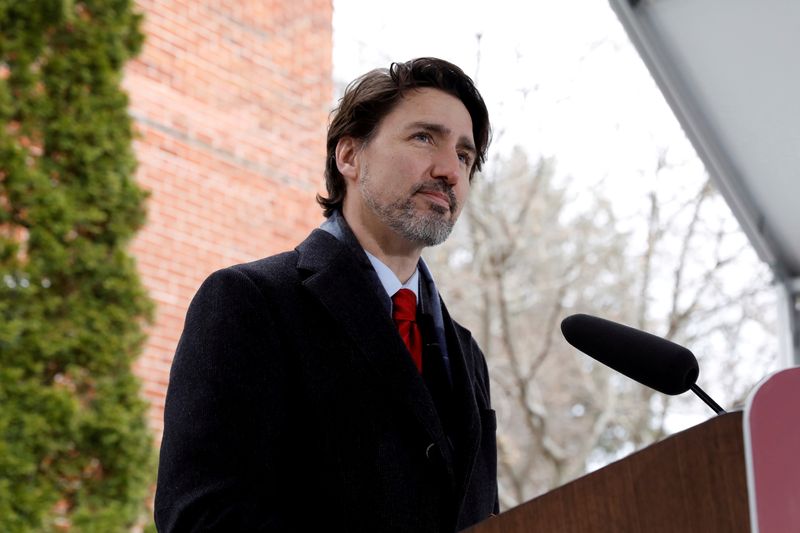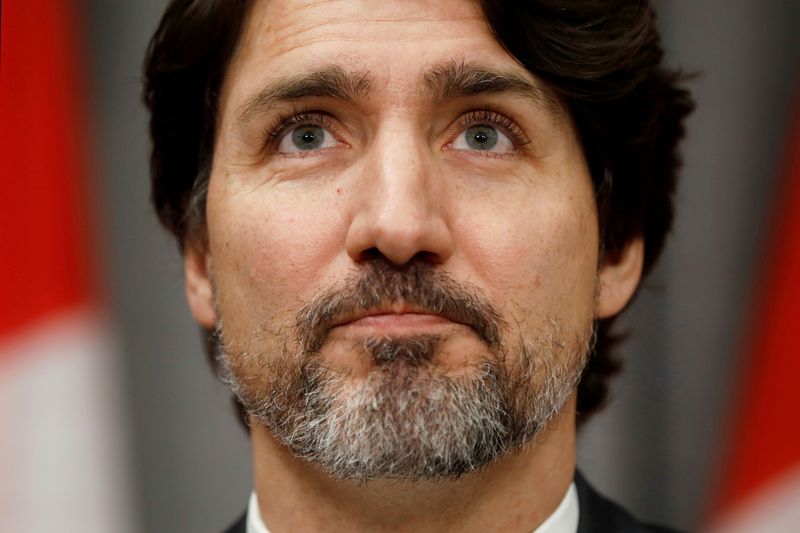By David Ljunggren and Steve Scherer
OTTAWA (Reuters) - Canada and the country's 10 provinces will boost pay for essential workers such as employees in seniors' residences, which are linked to 80% of coronavirus deaths, Prime Minister Justin Trudeau said on Thursday.
"If you're risking your health to keep this country moving and you're making minimum wage, you deserve a raise," he told a daily briefing.
The total number of coronavirus-related deaths rose by just over 4% to 4,280 from 4,111 on Wednesday, official data showed, further evidence the outbreak has peaked. The number of positive diagnoses edged up to 63,895 from 62,458.
Quebec, the province hardest hit by the coronavirus, has unveiled plans to gradually restart its economy but on Thursday pushed back for the second time the date when businesses can reopen in Montreal, Canada's second biggest city.
Premier Francois Legault cited shortages of personnel in hospitals and said Quebec would offer higher pay to part-time medical workers. Montreal firms can now only open on May 25, not May 11 as originally planned.
"Montreal is fragile - the rest of Quebec is a paradise. That's how it is, they are two completely different worlds," said Quebec's chief public health office Horacio Arruda.
Canada's military is increasing its support in Quebec and aims to have more than 1,350 members in 25 different homes in coming days, Defence Minister Harjit Sajjan told reporters.
Trudeau made his announcement a day before Statistics Canada releases unemployment data for April. Analysts say they expect around 4 million people to have lost their jobs after a record 1 million were thrown out of work in March.
Manulife Financial Corp's (TO:MFC) chief executive Roy Gori cautioned against reopening economies too soon.
"Subsequent pandemic waves could create greater ... devastation than we've already seen," he said.
Under the deal with the provinces, Ottawa will contribute C$3 billion ($2.1 billion), representing 75% percent of the total cost of the increased wages, the government said in a statement.
The provinces will be responsible for determining who is essential and how much they receive.
Ontario, Canada's most populous province, will slowly begin resuming elective and non-essential surgeries, Premier Doug Ford announced, starting with the most urgent procedures such as cancer and cardiac surgeries.

The Pacific province of British Columbia said it would unveil a plan to handle 30,000 non-urgent surgeries that have been postponed. This involves adding new capacity and hiring and training staff.
